Iran Human Rights Rapporteur Given Extra Year
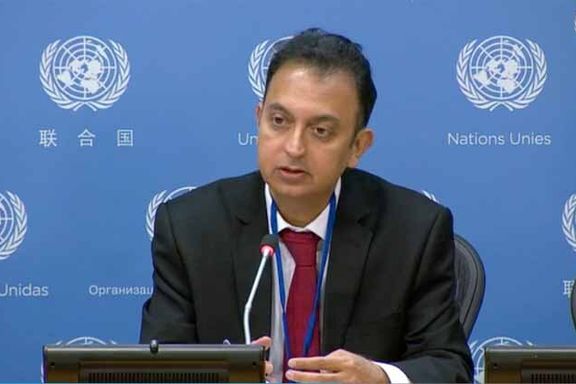
The United Nations Human Rights Council has extended the mandate of the Special Rapporteur of the Human Rights in Iran Javaid Rehman.

The United Nations Human Rights Council has extended the mandate of the Special Rapporteur of the Human Rights in Iran Javaid Rehman.
Member states voted to extend Rehman’s role for a further year at the 49th session of the Human Rights Council (HRC) Friday, along with similar mandates for North Korea and Myanmar.
The council requested Rehman, a law professor at London’s Brunel University, to submit a report to the UN General Assembly at its 77th session in September 2022, and to the HRC’s 52nd session in February-March 2023.
“The renewal of this mandate is essential in light of the persistence of a pattern of serious human rights violations and international crimes committed by Iranian authorities, as extensively documented by civil society monitors and by the Special Rapporteur,” read a letter to the HRC from Iranian and international human rights organizations.
Later on Friday, Foreign Ministry Spokesman Saeed Khatibzadeh rejected the UN resolution on the human rights situation in the country, saying it was drafted by Britain and other Western countries based on groundless claims and incorrect information and is “devoid of any legal validity”.
Rehman was appointed as the third rapporteur on Iran July 6, 2018, following Asma Jahangir and Ahmed Shaheed. The HRC had re-established the mandate of a rapporteur on Iran’s human rights situation in 2011 after terminated an earlier one in 2002.
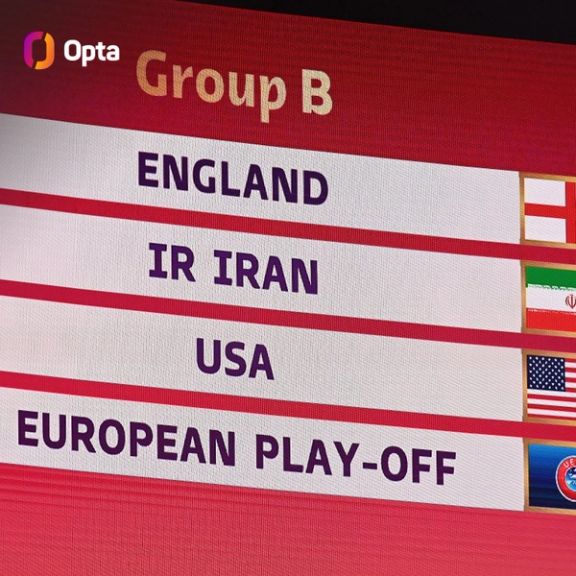
Iranian men’s national football (soccer) team has been drawn in Group B of Qatar FIFA World Cup along with the United States and England.
The drawing ceremony was held in Qatar on Friday, while Iran’s legendary goal scorer Ali Daei was also in attendance.
The fourth team of the group will be the winner of European playoffs that may be either Ukraine, Scotland or Wales.
The last time Iran and the US played against each other was the 1998 World Cup in France where the Iranian side beat the United States 2-1 with goals by Hamid Estili and Mehdi Mahdavikia.
According to the updated FIFA rankings, Group B is the ‘group of death’ -- the moniker that is used to describe a World Cup group that looks particularly challenging. Two teams will qualify to move up to the next round of matches.
This comes as FIFA has been urged by many people and organizations from Iran and other countries to ban Iran’s national football team from the 2022 World Cup for Iran’s recent action forcibly barring women from entering the stadium to watch a qualifying match.
A campaign on social media has seen hashtags such as #Fifabaniri (FIFA ban Islamic Republic of Iran) and others rising to the top of most-used hashtags in Persian-language Twitter.
On Tuesday, security forces denied women entry into a stadium in Mashhad, north-east Iran, to watch a FIFA World Cup qualifier between Iran and Lebanon, using pepper spray to disperse them.
A campaign inside Iran sees some former and current members of Iran's national team pledging not to enter stadiums as long as women are not allowed.
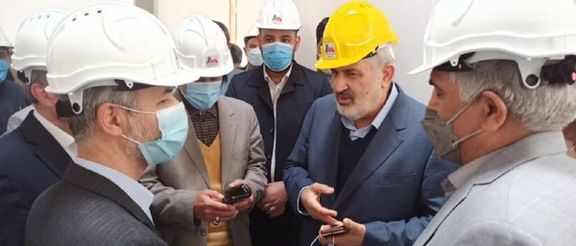
Iran’s Energy Minister Ali Akbar Mehrabian says the country has a deficit of about 15,000 megawatts in electricity production.
He announced the shortage in power production on the sidelines of a visit to a power plant construction project in the northeastern province of Razavi Khorasan on Thursday.
Mehrabian went on to say that 27 power plant units, generating about 4,500 megawatts of electricity, will enter the country’s grid this summer.
Mehrabian is in the province as part of a large delegation of ministers and officials accompanying President Ebrahim Raisi’s to his hometown, where they made a series of promises about different projects and measures to be realized this year.
According to recent data released by the ministry, power plants that were commissioned during the previous Iranian year (ended on March 20) only added a cumulative capacity of 965 megawatts to the supply network despite the announced target of adding 3,500 megawatts during the year.
Electricity consumption has been increasing in Iran because of extremely low prices, considered a subsidy in the state-controlled economy. Usage has reached to around 60,000 megawatt hours, while both power plant capacity and their fuel supply remains inadequate. At the same time, Iran exports electricity to Iraq while blackouts happen regularly at home.
Late in March, Foreign Minister Hossein Amir-Abdollahian reiterated “Iran's readiness to establish two 1,000-megawatt power stations in Lebanon”.
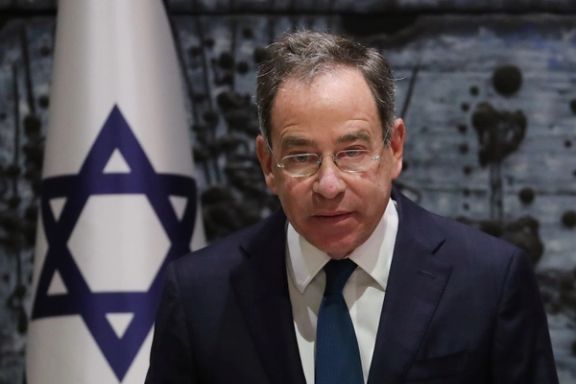
The US envoy to Israel says the country can do whatever it needs against Iran and would not face any restrictions from US regardless of the result of nuclear talks.
Ambassador Tom Nides told Israel’s Channel 12 news on Thursday, “Israel can do and take all the steps it needs to take to protect the state of Israel”.
He added that “If we have a deal, the Israelis’ hands are not tied. If we don’t have a deal, the Israelis’ hands are certainly not tied”, noting that “We’re not going to tell the government what to do”.
About briefing Israel on the latest developments of the Vienna nuclear talks to revive the 2015 Iran nuclear deal, the ambassador pointed out, “The Israelis know very clearly exactly what is going on. I’m not suggesting they necessarily like it always, but there are no secrets here”.
During a joint press conference with US Secretary of State Antony Blinken on Sunday, Israeli Foreign Minister Yair Lapid said, "We have disagreements about a nuclear agreement and its consequences, but open and honest dialogue is part of the strength of our friendship. Israel and the United States will continue to work together to prevent a nuclear Iran”.
There are media reports that an air defense pact between Israel and friendly regional countries is in the works to confront threats posed by Iranian drones and missiles.
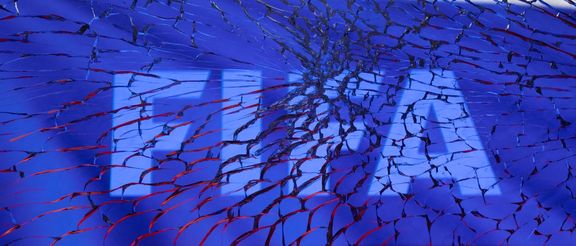
The United States Senate Foreign Relations Committee has called on FIFA, the world football authority, to hold the Iranian Football Federation responsible for barring women from a match Tuesday.
The committee’s twitter account carried the message Thursday, deploring “Iran’s attack on women peacefully protesting its discriminatory stadium ban...” Security forces denied women entry into a stadium in Mashhad, north-east Iran, to watch a FIFA World Cup qualifier between Iran and Lebanon, reportedly using pepper spray to disperse them.
Although Iran won the game 2-0, thereby qualifying for the World Cup in Qatar, some Iranians are urging FIFA to bar the country from the tournament, with #Fifabaniri (FIFA ban Islamic Republic of Iran) and other hashtags rising to the top of most-used hashtags in Persian-language Twitter.
In a letter to FIFA's deputy secretary general, Mattias Grafstrom, of the United for Navid group set up after the execution of wrestler Navid Afkari in September 2020, backed the call, alleging Iran was practicing "gender apartheid" and continuing “to violate the Olympic Charter and FIFA regulations."
A campaign inside Iran sees some former and current members of Iran's national team pledging not to enter stadiums as long as women are not allowed. “I hope that from now on during home matches, our dear women can also spectate so we can make them happy as well,” Alireza Jahanbakhsh, an Iranian international who plays club football in the Netherlands, told state television.
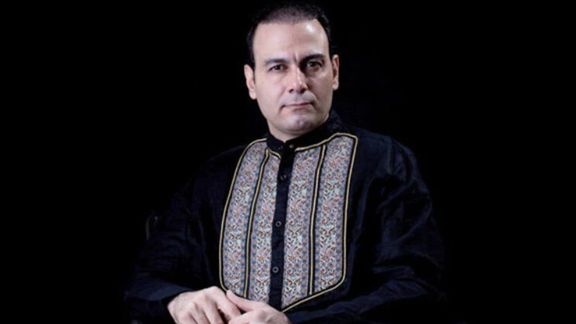
The refusal of the United States to allow entry to Iranian vocalist Alireza Ghorbani was probably due to his having been in Iran’s Revolutionary Guards.
The Islamic Revolutionary Guards Corps (IRGC) has been listed by the United States since 2019 as a ‘foreign terrorist organization,’ a designation otherwise reserved for non-state bodies. Ghorbani, a Canadian resident, was travelling Friday to perform at a concert marking Noruz (Nowruz), Iranian New Year, at Costa Mesa’s Segerstrom Center, California, Saturday when he was questioned by agents at a Toronto airport and denied entry to the US.
“He got on his flight, sat on his seat and some [US immigration] officers got on the flight and took him out,” Alireza Ardekani, executive director of Los Angeles-area nonprofit Farhang (culture) Foundation, joint host of the event, told the Los Angeles Times.
“They interrogated him for nearly four hours and eventually told him his visa was going to be canceled and he could no longer travel to the US,” Ardekani said Tuesday, adding that he had learned that Ghorbani’s denial of travel likely stemmed from the 49-year-old’s service decades earlier in the IRGC.
The Iranian Canadian Congress (ICC) in a statement on Twitter said it was concerned at Ghorbani's detention and interrogation and had brought the issue of the US refusing entry to Iranian-Canadians conscripted by the IRGC to the attention of Canadian government officials on many occasions.
"We continue our efforts to end discriminatory behavior against our community," the statement said. While Canadian permanent residents may need a non-immigrant visa to enter the US, the US State Department stipulates that “members of a designated FTO, if they are aliens, are inadmissible to and, in certain circumstances, removable from the United States.”
The IRGC is part of the Iranian Armed Forces, which also includes the ‘regular’ Army and Law Enforcement, all under the overall command of Supreme Leader Ali Khamenei. The three branches each includes young men serving a 21-month compulsory military service
Wider worry
Around one-fourth of IRGC's 190,0000 are conscripts and Ghorbani, who like many other young men do military service after graduating from high school, was probably assigned to the IRGC when drafted three decades ago.
Masih Fouladi, deputy director of the Los Angeles chapter of the Council on American-Islamic Relations, told the Los Angeles Times, that the case illustrated a wider worry for Iranians in north America.
“They may have served 20, 25 or 30 years ago, and many of them may have served in clerical roles, nothing that had anything to do with combat,” he said. “And now they’re facing obstacles to residency status… I think [the designation] was intended to marginalize Iran’s government, but the truth it is has really impacted Americans here who identify as Iranian.”
Ghorbani has performed in many countries including with the Vancouver Opera Orchestra in 2019. Among international awards, he took the silver medal of the Global Music Awards in 2020 for outstanding achievement. Singer Sina Sarlak filled in for Ghorbani Saurday, performing “Ey Iran!”